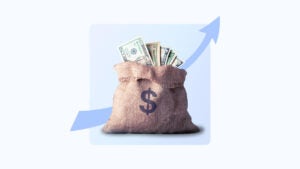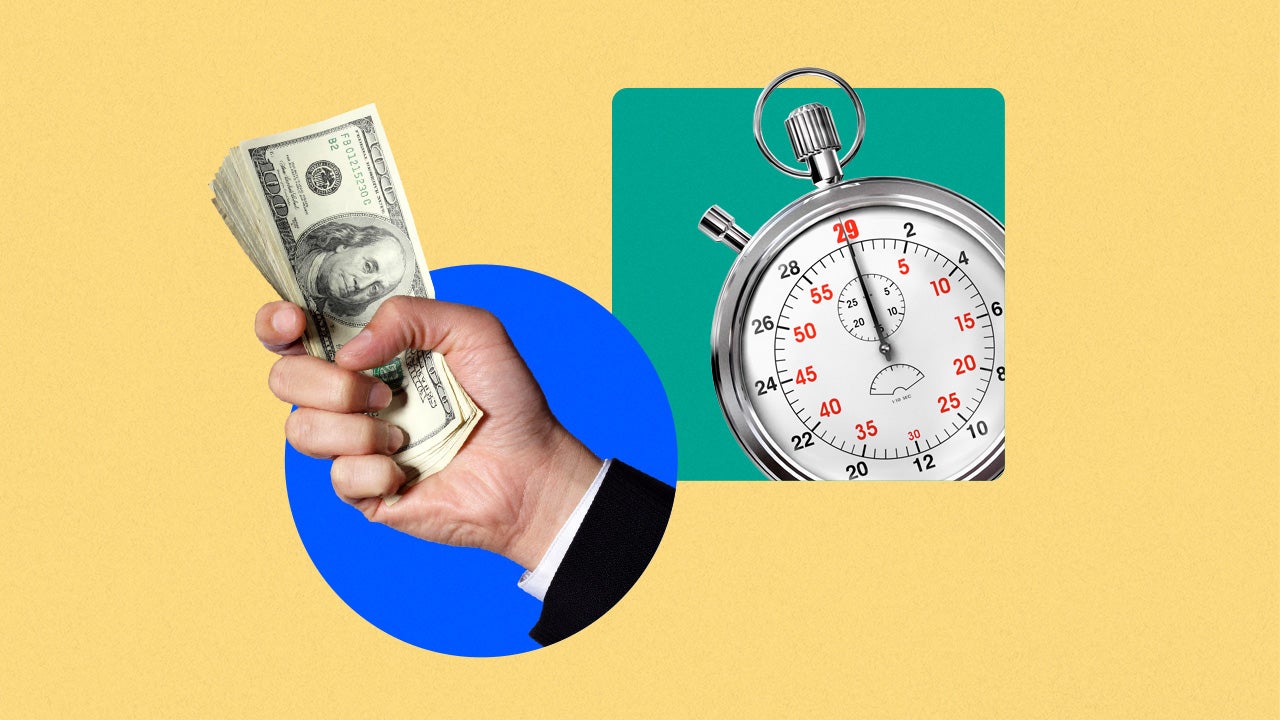Top lenders for SBA loans




Key takeaways
- Popular SBA 7(a) lenders include Newtek Small Business Finance, Live Oak Bank, The Huntington National Bank and Readycap Lending.
- SBA 504 lenders have provided over $6 billion in funding to small businesses.
- SBA 7(a) and 504 lenders approved more than 76,000 small business loans combined.
The Small Business Administration (SBA) makes it possible for eligible business owners to borrow money with the backing of the government through SBA loans. These government-backed loans mean less risk for the lender and greater accessibility for the borrower.
Despite the name, SBA loans are not available through the SBA directly, but rather through a network of authorized lenders. Small business owners have numerous choices for SBA lenders, but one of the drawbacks of these loans can be the lengthier timeline for approval. The best SBA lenders offer more efficient approvals, or more relaxed eligibility requirements for borrowers with credit challenges.
Best SBA 7(a) lenders
| Lender | Approval amount | Average loan size |
|---|---|---|
| Newtek Small Business Finance | $2,098,740,400 | $549,552 |
| Live Oak Bank | $1,983,953,500 | $1,377,745 |
| Huntington National Bank | $1,530,064,700 | $201,935 |
| Readycap Lending | $1,042,855,800 | $292,035 |
| US Bank | $708,277,200 | $227,069 |
| JP Morgan | $626,150,300 | $245,261 |
| Bank of America | $609,574,600 | $512,248 |
| First Internet Bank of Indiana | $580,272,200 | $1,461,643 |
| TD Bank | $569,701,600 | $142,568 |
| Wells Fargo | $567,031,300 | $254,960 |
Amounts accurate for fiscal year 2024, ending September 30, 2024.
For the 2024 fiscal year, SBA 7(a) lenders approved over 70,000 loans for a total of $31.1 billion in small business loans, according to the weekly SBA lending report. On average, business owners were granted $443,097 per SBA loan to grow their businesses. By comparison, in fiscal 2023, 7(a) lenders approved 57,362 loans totaling $27.5 billion in funding.
In fiscal 2024, over 22,000 approvals were for brand-new startups and startup businesses with less than two years under their belts. Most startups received 7(a) SBA loans, while more than 1,000 startups obtained 504 financing.
SBA Preferred Lenders
While you can get SBA business loans from many sources, some lenders stand out, usually lenders that are part of the SBA Preferred Lending Program (PLP). These lenders tend to approve large volumes of SBA loans and can bypass direct SBA approval in some cases. This speeds up approvals and gives them the ability to handle more approvals than other lenders.
For example, preferred lender Huntington National Bank continues to be one of the top originators, approving thousands more SBA loans than its peers nationally for the past five years. Live Oak Bank and Newtek Small Business Finance are the only ones to outpace Huntington National Bank in the amounts financed.
Best SBA 504 lenders
| Lender | Approval amount | Average loan size |
|---|---|---|
| Mortgage Capital Development Corporation | $644,557,00 | $1,315,422 |
| Florida Business Development Corporation | $443,846,000 | $1,077,296 |
| Florida First Capital Finance Corporation | $387,334,000 | $1,184,508 |
| Business Finance Capital | $361,422,000 | $1,343,576 |
| California Statewide Certified Development Corporation | $290,727,000 | $1,221,542 |
| Empire State Certified Development Corporation | $264,620,000 | $1,230,791 |
| Mountain West Small Business Finance | $225,538,000 | $1,044,157 |
| Capital Certified Development Corporation | $218,123,000 | $1,817,692 |
| Small Business Growth Corporation | $193,719,000 | $1,181,213 |
| WBD, Inc. | $179,333,000 | $1,093,494 |
| Trenton Business Assistance Corporation | $132,115,000 | $1,501,307 |
Amounts accurate for fiscal year 2024, ending September 30, 2024.
Compared to SBA 7(a) loans, SBA 504 loans aren’t as widely approved, but small businesses tend to receive more in financing. Over 5,900 small businesses received SBA 504 loans in fiscal year 2024, totaling over $6.6 billion in funding, based on the SBA weekly lending report. The average loan is funded for over $1 million. In fiscal 2023, 5,924 loans were approved for a total of $6.4 billion.
One possible reason for the larger loan amounts is that SBA 504 loans are designed for construction projects or equipment purchases. It may take more to finance these projects than a loan for general working capital.
The top SBA lenders for 504 loans aren’t recognizable banks since you typically apply through a Certified Development Company (CDC). The CDC also works with another financial institution to guarantee the loan.
SBA lenders for startups and bad credit
SBA business loans are competitive in nature due to their interest rates and payment terms. Many lenders keep eligibility tight, which isn’t helpful for subprime borrowers (a borrower viewed as a higher credit risk). To help overcome this problem, we rounded up online lenders that offer some of the best small business loans. This includes SBA loans for startups and bad credit businesses.
Fundible
Fundible is a fintech lender servicing a variety of businesses through its direct lending platform or network of lenders. It offers business loans for bad credit and startups, with the ability to work with personal credit scores as low as 450 through its loan portfolio. In terms of SBA loans, you’ll need higher credit to qualify, but it’s still accepting of startup businesses.
- 650 personal credit score
- $250,000 in annual revenue
- 1 year in business
As with any lender, you’re more likely to qualify with even stronger credentials. For example, you’re most likely to get approved for an SBA loan with a 685 personal credit score and $350,000 in annual revenue.
Creditfy
While SBA loans aren’t its main focus, Creditfy does keep lenient requirements to apply. It accepts businesses with as little as six months experience and no revenue. You also need a personal credit score of just 600, well below the usual SBA loan credit standards. The lender prefers to see your financials at $250,000 per year, giving you a leg up in the approval process.
Funding Circle
Funding Circle is a unique online-based SBA lender specializing in small SBA loans for fair or strong credit borrowers. Business owners can qualify with as little as a 640 personal credit score for loans from $10,000 to $5,000,000. You will need to be in business for at least two years and have $400,000 in annual revenue.
Lendio
Getting an SBA business loan through Lendio works well for borrowers with less-than-stellar finances because it’s a loan marketplace. Lendio partners with over 75 lenders to bring you an array of SBA lending options, including SBA 7(a), SBA 504 and SBA microloans.
You need at least a 650 personal credit score and $8,000 in monthly revenue. Additionally, you will need two years of generating revenue behind you before you can be accepted.
How to choose an SBA lender
A host of approved lenders offer SBA business loans. You can choose the right SBA lender by considering a few features:
- Type of SBA loan. The SBA 7(a) loan is the most popular, but if you need a smaller loan size, you could consider other types of SBA loans. For example, you could go for an SBA Express loan which speeds up the SBA approval process for loans under $500,000.
- Lending criteria. The SBA doesn’t require set criteria for lenders to accept small businesses wanting an SBA loan. So, you’ll want to make sure your business meets the lending standards of the individual lender you’re applying for.
- Funding timelines. SBA approvals can take anywhere from 30 to 90 days from start to finish. Some lenders will state their usual funding speed, which can help you understand how long to expect until you receive the funds.
- Type of lender. You can get SBA loans from both traditional and fintech lenders. Traditional lenders typically have the tightest lending requirements. You can also go through an SBA Preferred Lender, a lender with SBA certification that can process loans efficiently.
Bottom line
The top SBA lenders process thousands of loans each year, proving that they have the experience and expertise to approve these low-interest business loans efficiently. While experience is a plus, you should also consider the type of SBA loan as well as the standards your business must meet.
Many SBA lenders tighten requirements due to the competitive atmosphere that the SBA loan features create. Specific lenders offer SBA loans to businesses with under two years’ experience or a lower credit score in the low 600s, though. You can also try for an SBA microloan. Some lenders welcome business owners with a credit score of 500 or lower.
Frequently asked questions
Why we ask for feedback Your feedback helps us improve our content and services. It takes less than a minute to complete.
Your responses are anonymous and will only be used for improving our website.
You may also like

SBA loan and startup funding for women

SBA Express loan: What it is and how to apply

Best low-interest business loans for bad credit

Hard money business loans: What to know
